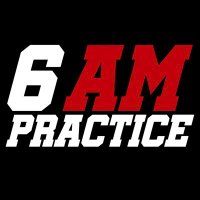
Coach Riley
@6ampractice
moving over to @TheMentalWins on Twitter
ID: 4838528948
31-01-2016 06:08:26
3,3K Tweet
313 Takipçi
76 Takip Edilen





















@6ampractice
moving over to @TheMentalWins on Twitter
ID: 4838528948
31-01-2016 06:08:26
3,3K Tweet
313 Takipçi
76 Takip Edilen



















